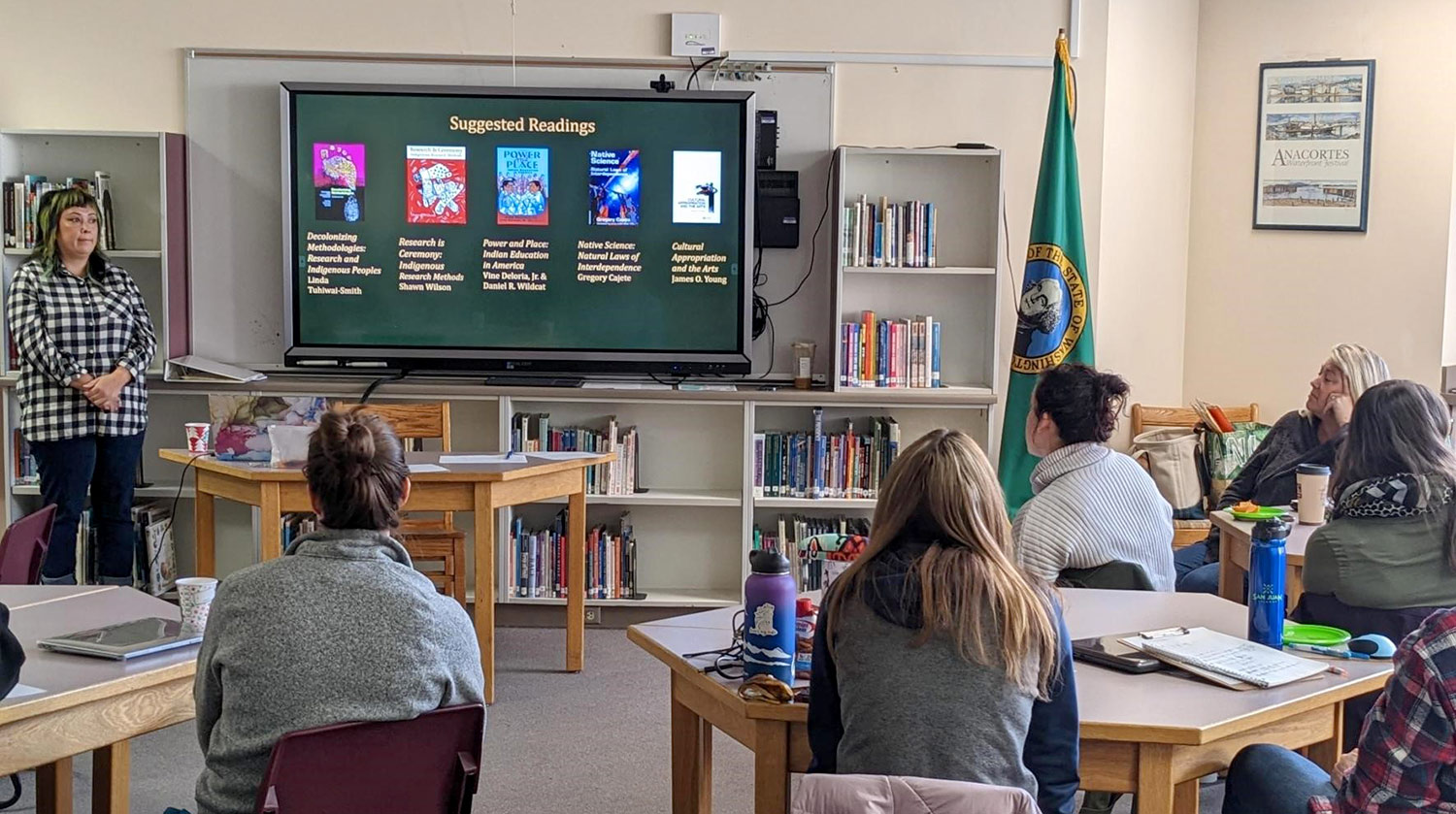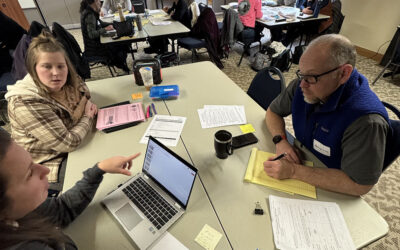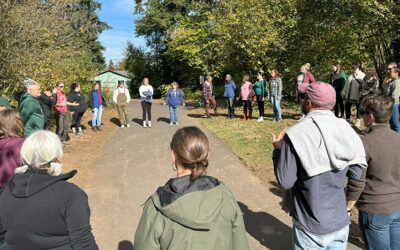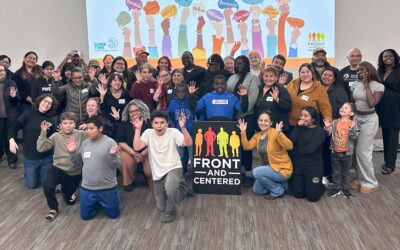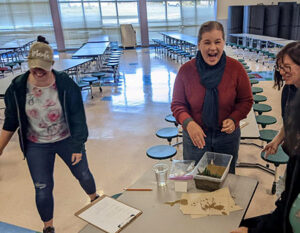
Teachers participating in a beach erosion mitigation activity
How do you stop a beach from eroding? What do city planners need to consider to save their cities from sea level rise? These are just two of the questions teachers from NWESD 189 tackled at a November workshop with Pacific Education Institute (PEI) FieldSTEM Coordinators Molly Griffiths, Amy Keiper, and Lourdes Flores. Hosted at Anacortes Middle School, this in-person workshop centered around PEI’s Coastal Hazards Solutions Oriented Learning Storylines (SOLS) with the goal of deepening participant’s knowledge and understanding of coastal hazards, mitigation and adaptation strategies, elevating student voice, and NGSS-aligned assessments.
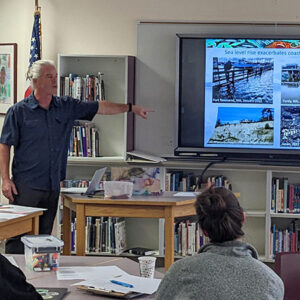
Ian Miller from Washington Sea Grant presenting on how sea level rise impacts coastal hazards
The day began with an activity that asked participants to engineer beach erosion mitigation solutions utilizing a given set of objects, such as plants, LEGOs, and discarded Christmas trees. We then discussed how this activity could be used and adapted to fit a wide range of grade levels and learners. Participants also played a game, Beat the Uncertainty, where they were asked to become city planners and choose from a list of mitigation and adaptation strategies to try and save their cities from rising sea levels. This was followed by a wonderful conversation around how planners must choose strategies based on cost and which will benefit the greater community, as opposed to a handful of landowners. Ian Miller of WA Sea Grant said that the game was a good representation of what he does in real life and the real-world decisions made throughout the region.
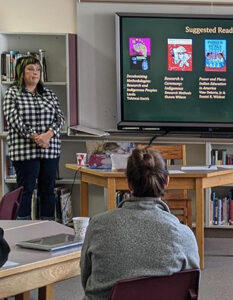
Between Two Worlds Indigenous Science Program Instructor, Jen Willup, presenting on the challenges Indigenous youth often find within a traditional learning environment
One of the highlights of the day was hearing from two phenomenal guest speakers: Jen Willup, a Swinomish Tribal member and the Between Two Worlds Indigenous Science Program Instructor, and Ian Miller, Coastal Hazard Specialist from Washington Sea Grant. Jen shared the core values of Indigenous Education and the challenges Indigenous youth often have in the public education system which generated a rich conversation the teachers appreciated. Ian shared his research and expertise around sea level rise, how it relates to climate change, and what communities can do about it. When asked on the evaluation how one teacher suggested improvement of the workshop, her response was, “I have no suggestions. I loved the timing, format, variety, and instructors. And the guests!!!”

